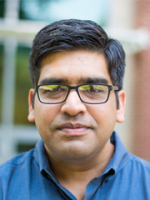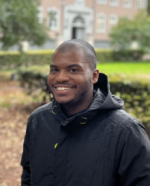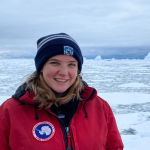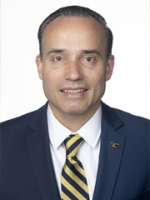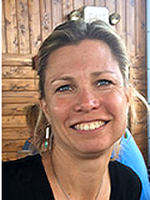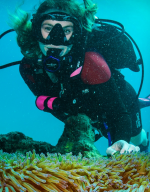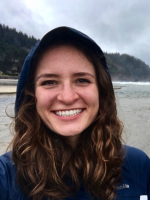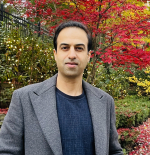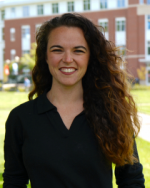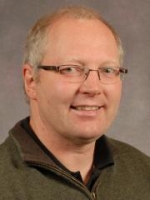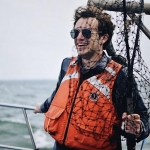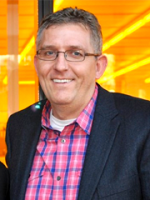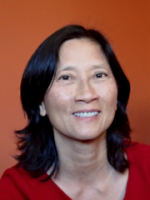Ocean sustainability embodies the approach required to manage our oceans and the services they provide.The oceans and in particular their coastal areas are an essential component of the Earth’s ecosystem hosting between 500,000 and 10 million species that provide a wide range of ecosystem services. The oceans are key contributors to the global economies also in the transportation, energy and tourism sectors. The United Nations estimated that “over three billion people depend on marine and coastal resources for their livelihoods”. The oceans and their resources are therefore critical to food security and human welfare, while providing an essential buffer to global climate warming and to the decline of biodiversity.
The fast population increase and its general movement towards coastal areas, regional mismanagement practices and global climate change are threatening the oceans and the service they provide. Pollution, overfishing, growing demand for ocean resources, anthropogenic climate change are few of the challenges that are negatively impacting the oceans environments. Comprehensive studies and solutions to insure a sustainable development of land- and marine- based human activities, and a reduction of the negative anthropogenic impacts on the marine environment are therefore required. Projects and solutions should be designed and implemented in an integrated, seamless, cross-sectoral and cross-scale manner.
Georgia Tech is very actively engaged in the development of sustainable solutions to a broad range of problems through multiple projects across campus, and students in the OSE program can take advantage of several resources while conducting research in ocean sustainability.
Georgia Tech Strategic Energy Institute
Brook Byers Institute for Sustainable Systems
Social-Ecological Ocean Systems
Understanding how human activities affect marine resources, and how in turn societies are affected by changes in ocean systems is a key challenge in ocean research. An important framework that is currently used to explore the interactions between human systems and the different dimensions of the natural system is the Social-Ecological-Environmental Systems (SEES) approach. Although the need to consider multi-dimensional and interdisciplinary interactions has been long recognized, progress in developing integrated models to explore the sensitivity of specific SEES under different scenarios of change remains an area of active research. One of the goals of the OSE faculty is to develop new transdisciplinary projects with scientists in the School of Public Policy, School of Economic and Sheller College of Business to address emerging social-ecological issues in ocean systems, particularly in coastal areas.
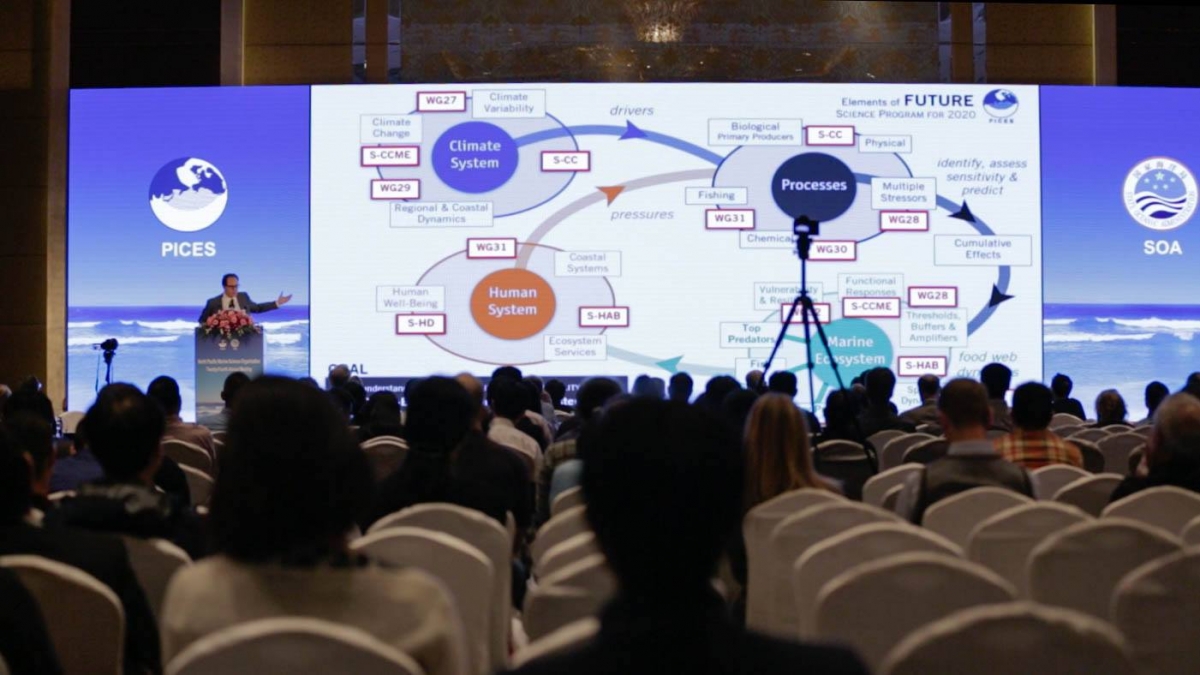
Dr. Di Lorenzo explains a social-ecological framework to an intergovernmental organization that focuses on Pacific climate and ecosystems
Ecosystems Services
Human societies depend on natural ecosystem services and biodiversity for their food, clothing, shelter, medicines, and to purify air and water and moderate climate, yet the activities of >7 billion humans are changing natural systems in ways that compromise their ability to provide these critical ecosystem services. These changes are not future predictions; they are present realities. This is especially true for ocean ecosystems, which comprise 70% of the Earth’s surface, hold a vast majority of Earth’s live forms, and absorb and buffer many consequences of over harvesting, pollution, habitat destruction, and global change. Examples of such ecosystems studied at Georgia Tech are coral reefs, marshes, mangroves, rivers, and lakes.
Ocean Energy
Increasing energy consumption and depleting reserves of fossil fuels resulted in growing interest in alternative renewable energy from the ocean. Ocean currents are an alternative source of clean energy due to their inherent reliability, persistence and sustainability. Researchers and engineers at Georgia Tech use advance regional ocean models to simulate tidal flows along the entire U.S. coastline and map the energy potential associated with tides and ocean currents, including basin-scale circulation features such as the Gulf Stream. Model simulations are complemented with engineering studies and testing of new ocean energy extracting devices.
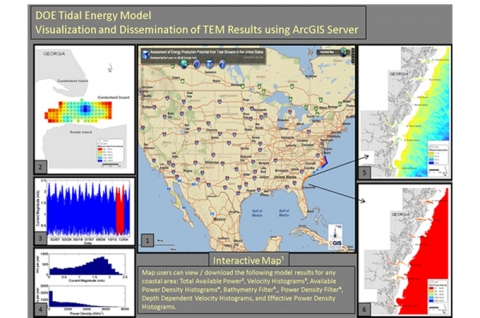
Sustainable Planning and Development of Coasts
Creating sustainable and resilient cities requires understanding the network properties of food, energy, water and other infrastructure. At Georgia Tech several groups are working towards new methodologies to understand and quantify the resilience and sustainability of coastal areas such as the location-independent scalable framework for Community based Sustainable Coastal Area Resilience Planning (C-SCARP), and the Ecological Network Analysis (ENA) tool. These methods help managers to take into account the environmental, ecological and social dimensions of coastal systems in their development planning.
People in Ocean Sustainability
-
Assistant Professor(Meta)genomics, Biochemistry, Structural and Mechanistic Enzymology
 BIOL
BIOL -
OSE Ph.D. StudentMarine Natural Products Chemistry & Marine Chemical Ecology
 BIOL
BIOL -
Assistant Professorbiogeochemistry, climate, oceanography, paleoclimate
 EAS
EAS -
ProfessorPhysical Oceanography, Climate Dynamics
 EAS
EAS -
Adunct Professor and Professor, Brown UniversityPaleooceanography, Isotope Geochemistry, Climate Dynamics
 EAS
EAS -
OSE Ph.D. StudentMicrobiology, Biological Degradation
 BIOL
BIOL -
Adjunct Professor & Co-Founder, OSEOcean and Climate Dynamics, Coastal Marine Ecosystems
 EAS
EAS -
Assistant ProfessorPolar oceanography; biophysical interactions; ocean mixing; ocean, ice and atmosphere interactions; numerical modeling; shipboard and autonomous ocean observations
 EAS
EAS -
OSE Ph.D. StudentMicrobiology, Biogeochemistry, Oceanography & Climate
 EAS
EAS -
ProfessorCoastal Structures, Natural Hazards, Coastal Engineering
 CEE
CEE -
Elizabeth & Bill Higginbotham ProfessorGeosystems Engineering, Coastal Sustainability
 CEE
CEE -
Associate ProfessorMicrobiology, Biogeochemistry, Biogeochemical Cycles
 EAS
EAS -
OSE Ph.D. Student
 EAS
EAS -
Professor & Assoc. Chair, CE and co-Director and Chair GC, OSEOcean Energy, Coastal Engineering, Waves
 CEE
CEE -
Regents ProfessorMarine Ecology, Chemical Ecology
 BIOL
BIOL -
Assistant ProfessorClimate Dynamics
 EAS
EAS -
OSE Ph.D. StudentPhysical oceanography, bottom-boundary mixing
 EAS
EAS -
Ocean and Climate System, Physical Oceanography
 EAS
EAS -
OSE Ph.D. StudentMicrobiology, Biogeochemistry, Biogeochemical Cycles
 EAS
EAS -
Marine natural products, chemical ecology, marine microbiology
 BIO
BIO -
marine biogeochemistry, nutrient cycling, algal blooms
 BIO
BIO -
Richard C. Tucker ProfessorMicrobiology, Genomics
 CEE
CEE -
ProfessorMicrobial Ecology, Biodegradation, Bioremediation
 BIOL
BIOL -
Professor & Vice President for Interdisciplinary ResearchChemical Biology, Drug Discovery
 BIOL
BIOL -
Assistant ProfessorExperimental fluid mechanics, Turbulence theory, Turbulence in environmental processes
 CEE
CEE -
OSE Ph.D. Student
 EAS
EAS -
Professor & DeanPhysical Oceanography, Climate Dynamics
 EAS
EAS -
Microbiology, probiotics, coral, coral disease
 BIO
BIO -
OSE Ph.D. StudentCryosphere, Environmental Policy
 EAS
EAS -
OSE Ph.D. StudentShip Wake, Coastal Engineering
 CEE
CEE -
OSE Ph.D. StudentMarine Science, Conservation, Engineering, Technology
 EAS
EAS -
OSE Ph.D. Student
 BIOL
BIOL -
ProfessorFluid Mechanics, Coastal Dispersion
 CEE
CEE -
Assistant ProfessorHurricane Dynamics, Coastal Resilience and Intelligent Adaptation, Machine Learning and Physics-Informed AI, Climate Risk Modeling and Decision Science
 EAS
EAS -
Sediment Diagenesis, Biogeochemical Cycling, Climate, Instrument Design, Coastal Systems, Continental Shelf
 EAS
EAS -
OSE Ph.D. StudentMarine Hydrodynamics, Ocean Mechanics
 CEE
CEE -
Assistant ProfessorMarine microbial ecology, coral microbiomes, microbial predators
 BIO
BIO -
Adjunct Associate Professor and Associate Professor, Montana State UniversityMicrobiology, Microbial Ecology and Genomics
 BIOL
BIOL -
ProfessorGeochemistry, Coastal Systems
 EAS
EAS -
OSE Ph.D. Student
 EAS
EAS -
OSE Ph.D. StudentInvertebrate ecology and behavior, aquatic animal husbandry
 BIOL
BIOL -
Associate ProfessorFluid Mechanics, Hydrology, Climate, Statistics
 CEE
CEE -
Karen & John Huff School Chair and ProfessorEnvironmental and Ecological Fluid Mechanics
 CEE
CEE -
ProfessorMarine Ecology, Chemical Ecology
 BIOL
BIOL -
ProfessorMicrobial physiology, ecology, virulence, and evolution
 BIO
BIO -
ProfessorChemical Ecology, Marine Zooplankton
 BIOL
BIOL -
OSE Ph.D. Student
 EAS
EAS

